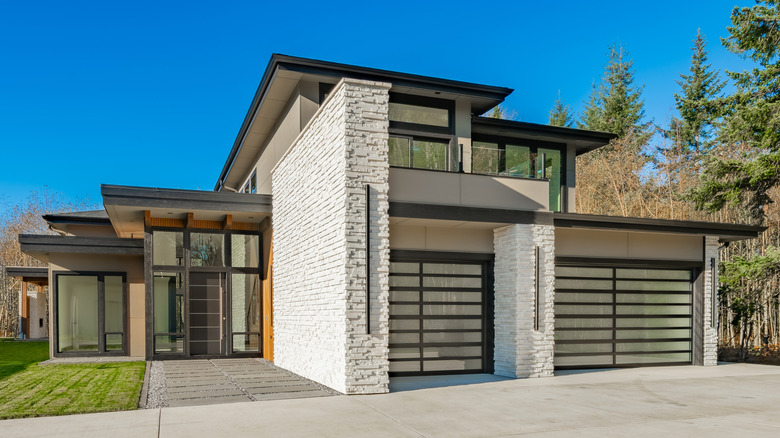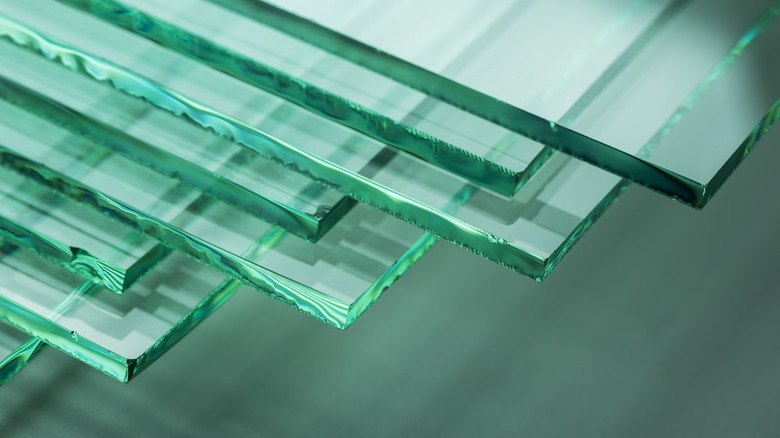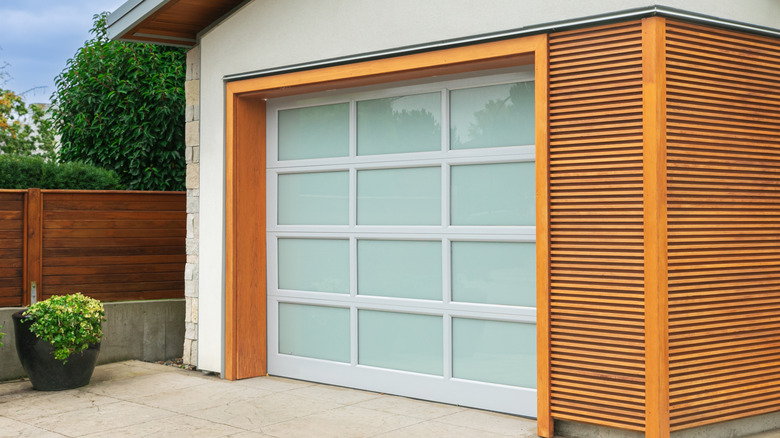How Thick Should The Glass Be On Your Garage Door?
If you are considering installing a glass garage door, you may be looking to take advantage of several benefits in this design, like improving the natural lighting available and delivering a sleek, modern design. Garage doors consisting of glass can be more expensive than traditional models, though, especially when using specialty materials or thicker glass, so you'll want to choose carefully. Typical thicknesses available in a glass garage door are between 1/8 of an inch and 1 inch. The standard thickness is 1/8 of an inch, but you may need thicker glass for insulation or security, as thicker glass will be more resistant to breakage.
If you're trying to find the most desirable thickness of the glass, start by determining your primary goal for the space. Protecting people nearby in case the glass shatters may require one thickness, while reducing the chance of a thief breaking through it may require another thickness. Learn more about which thickness of glass will be the right choice for different situations when you want to implement modern garage door ideas for your home.
Garage door glass thickness that provides the highest level of security
Selecting the right thickness for your garage door glass depends on how much you want to prioritize security. Because clear glass in a garage door allows thieves to see inside – which is one of the primary reasons why garage door windows might be a bad idea – having a thicker material can prevent the thief from looking for something to steal and trying to break the window to gain access. Even if the windows are small, a thief can still break them and use the hole to try to pop open the garage door.
The standard thickness for most garages is a 1/8-inch single-pane glass for the door windows, primarily because of its affordability. You could save $600 or more by selecting a 1/8-inch thick glass compared to a product that measures 1/2 of an inch in thickness. Additionally, thinner glass weighs less than thicker designs. An all-glass garage door can weigh 400 pounds or more, meaning you'll need at least a 3/4-horsepower garage door opener. A 1/2-horsepower opener is more common for residential use on non-glass doors. The 1/2-horsepower model costs less than openers that can handle more weight.
However, thicker glass provides enhanced durability for the door, allowing it to stand up to harsh weather, accidental breakage, and thieves. Simply put, thicker glass is harder to break because it can withstand higher tension levels. You might end up spending less on repairs later by selecting thicker glass now, helping you make up the difference in the original cost.
How different types of garage door glass affect thickness
Tempered glass is a popular selection for garage doors because of its affordability. It can range in thickness from 1/8 to 5/8 of an inch with thicker designs being more difficult to break. A 1/4-inch tempered design is the most common selection for garage doors. Tempered glass manufacturers use a heat treatment to make it four times stronger than standard designs. Should the tempered design break, it doesn't shatter into dangerous shards and increase the risk of lacerations like standard glass does. Instead, it should shatter into small chunks that are more like glass pebbles that create a far lower chance of causing lacerations.
When you're trying to reduce the ability of potential thieves or nosy neighbors to see into the garage, you could select a type of glass that allows some natural light to pass but obscures clear visibility. Frosted glass provides this option, and it often measures 1/8 of an inch in thickness. It's similar in affordability to tempered glass.
If you want extra insulation in the door because you're using the garage as a living space, you'll want to select insulated glass. You can usually find insulated designs for garage doors in thicknesses of 7/16, 5/8, and 1 inch. However, it's rare to see options thicker than 5/8 of an inch in use. Insulated glass for a garage door costs more than tempered or frosted, but it offers advantages like blocking noise transition and providing impact resistance.


